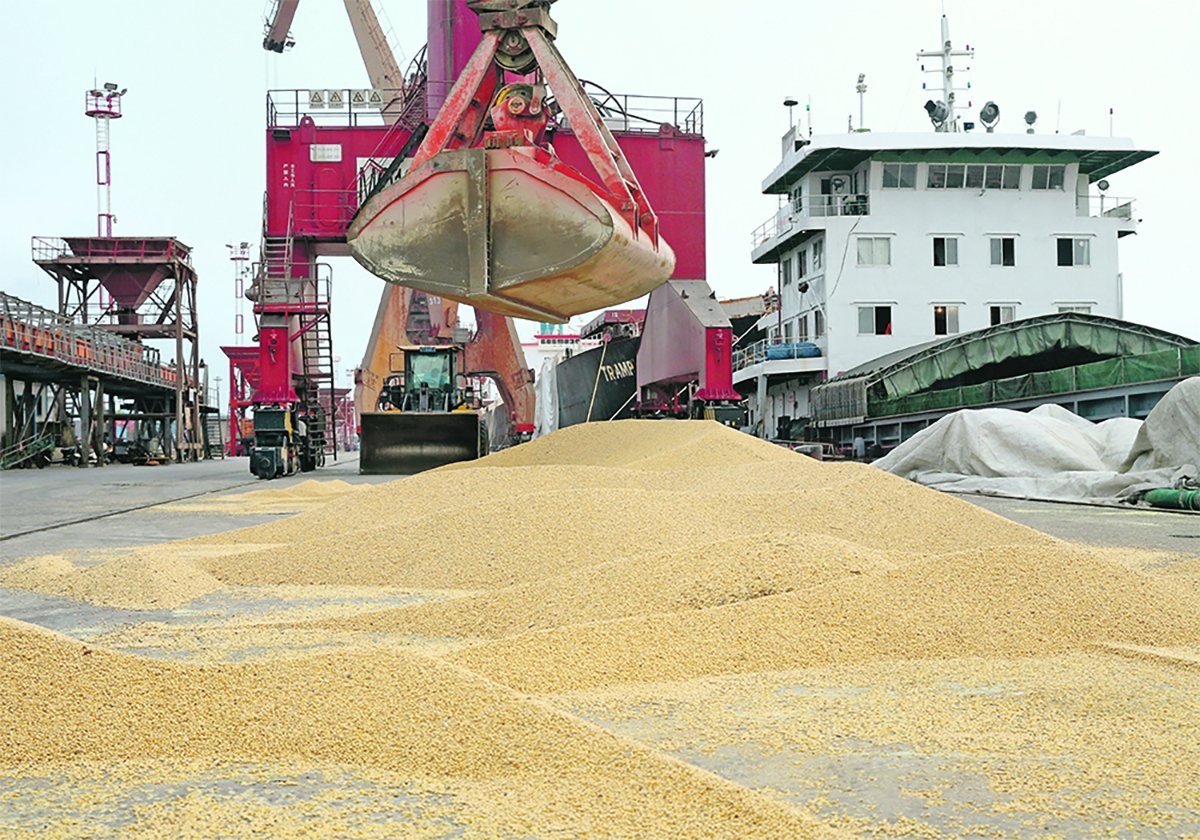The natural reaction is to strike back against American tariffs with tariffs of our own, but it’s like kicking the sandbox bully in the shins while he has you in a chokehold.
What’s to stop president Donald Trump from ratcheting up American tariffs even further? Not much, except that when a tariff becomes prohibitive, it generates zero revenue. At least in the short term, it’s difficult to imagine Trump backing down.
Just like the Russian invasion of Ukraine, which most pundits thought would be over in short order, we should prepare for a protracted economic battle with a country we once considered to be our closest friend and ally.
Read Also

U.S. soy subsidies will cause lasting damage to industry
Nothing illustrates the demise of world trade agreements more than the recent dispute between the United States and China.
While we can hope saner policies will eventually prevail south of the border, we shouldn’t count on it. Already, some American patriots are making disparaging remarks about the Canadian pushback.
Trump has not laid out conditions for tariff removal. Border security was obviously an excuse or red herring. He’s abrogating the free trade deal that he himself negotiated. Inflicting economic hurt to make Canada acquiesce seems to be the strategy. Making Canada the 51st state is no longer a joke.
Yes, we need to continue lobbying and building alliances south of the border. Yes, it’s reasonable to implement our own tariffs and use the money collected to support our hardest hit businesses and workers. However, a long-term strategy is even more important.
We need to stop thinking Canada can save the world from climate change. Mark Carney, the leading contender to replace Justin Trudeau says he’ll end the unpopular carbon tax in favour of green incentives.
While ending the carbon tax is a great start for making Canada more competitive, we won’t have the luxury of green incentive programs when the economy is in a tailspin. The recently announced $300 million for the On-Farm Climate Action Fund is money poorly spent.
For decades, politicians and business leaders have advocated for free trade within Canada. Although the lunacy of interprovincial trade barriers is widely acknowledged, every province wants to protect its own turf. That has to end. Just look at how meat processed in provincially inspected facilities can’t be sold in adjoining provinces.
We need to continue cultivating trade relationships with other countries and we need to manufacture more stuff at home and serve our own market. It shouldn’t take years to get approval for new mining projects. Our anti-pipeline, anti-fossil fuel, anti-development policies are now hampering our ability to pivot away from the United States.
It will take some time for trade flows to readjust and for the true cost of the tariffs to be clear. Further weakening of the Canadian dollar will also factor into the equation.
Let’s use canola as an example. The U.S. isn’t a big customer for raw seed, but 80 to 90 per cent of Canadian canola oil is exported to the U.S. and so is a lot of canola meal.
Given a 25 per cent tariff, U.S. buyers will likely look for other sources of vegetable oil. It may be at reduced value, but Canadian product should be able to find homes elsewhere.
We just don’t really know how trade flows will play out and where the economic pain will be the greatest, but it’s best to assume it’s going to be long and difficult. Even though we’re unlikely to win a trade war with the Americans, there are ways to thrive without them and the sooner we start, the better.
Kevin Hursh is an agricultural journalist, consultant and farmer. He can be reached by e-mail at kevin@hursh.ca.
















